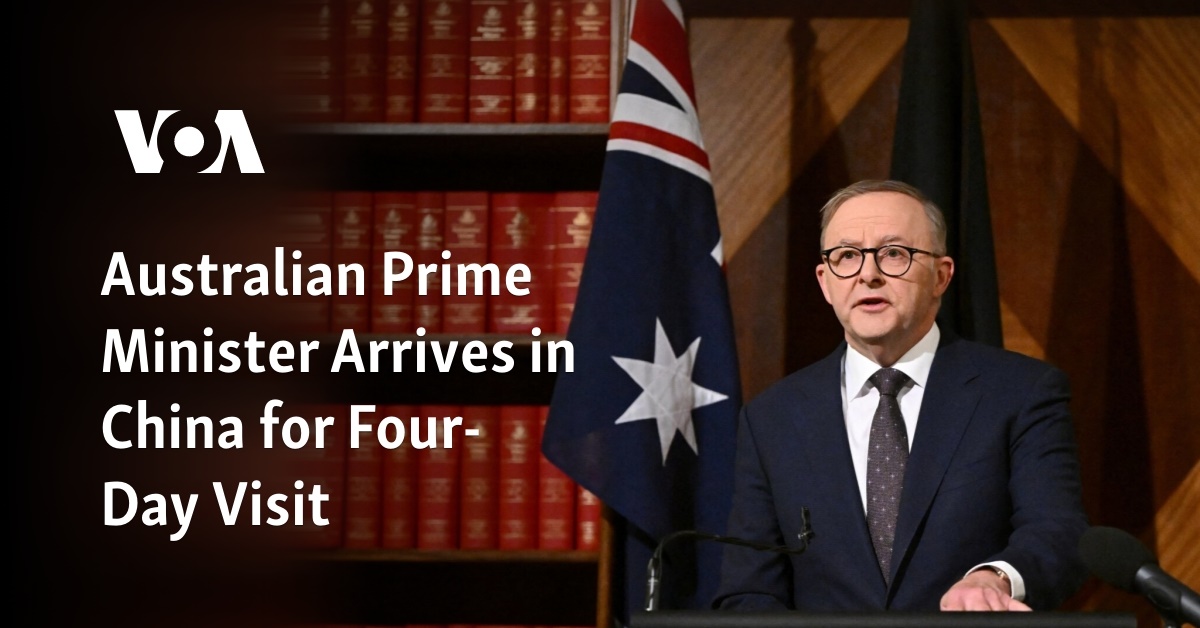
Australian Prime Minister Arrives in China for Four-Day Visit
['Australian', 'China', 'Albanese', 'Beijing', 'VOA']
Australian Prime Minister Anthony Albanese arrived in China on Saturday to kick off a four-day visit to the country, the first by an Australian leader since 2016. "The fact that it is the first visit in seven years to our major trading partner is a very po…
Australian Prime Minister Arrives in China for Four-Day Visit
Australian Prime Minister Anthony Albanese arrived in China on Saturday to kick off a four-day visit to the country, the first by an Australian leader since 2016. "We still have trade restrictions on Australian lobsters, Australian beef, and there's still the expedited review of the duties on wine that is yet to play out," said Benjamin Herscovitch, a research fellow at Australian National University. Trade tensions between China and Australia reached a high in 2020 after China imposed sanctions worth $12.7 billion on Australian products, including tariffs of between 116.2% and 218.4% on Australian wine. Herscovitch said Beijing will likely push Canberra to support its bid to join the Comprehensive and Progressive Agreement for Trans-Pacific Partnership, also known as the CPTPP. "I imagine there'll be discussions about the plan for removing China's remaining trade restrictions, and once that discussion has taken place, the Chinese side will probably press the Australian side on backing China's bid for CPTPP entry," he told VOA. "China will also be looking for progress when it comes to access for Chinese companies to the Australian critical minerals industry." Before Albanese revealed the date of his trip, Beijing on October 11 released Australian journalist Cheng Lei, who was detained in China for almost three years under espionage-related charges. In a letter to Albanese, which was shared with VOA, Yang's family members urged the Australian prime minister and his Cabinet members to "Achieve a second miracle" by saving Yang. Some experts say Albanese and his Cabinet members have consistently advocated for Australian citizens detained by China and expressed concerns about human rights violations in China since they came to power.